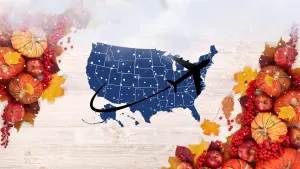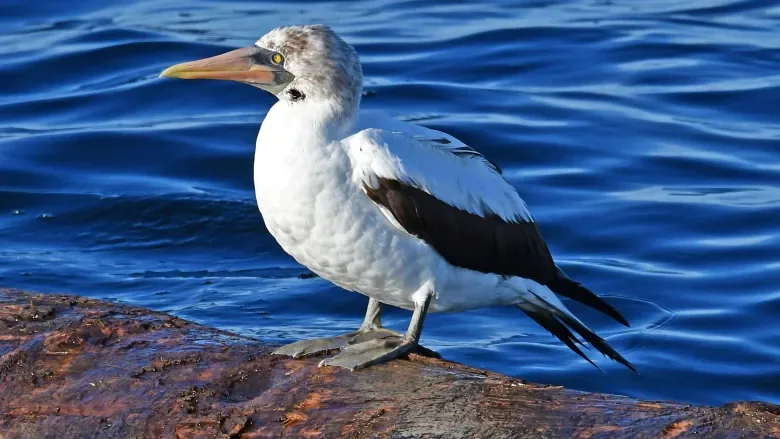
Rare Nazca booby bird sighting near Vancouver Island leaves people amazed
A Duncan, B.C., boat captain says it was the "highlight of her birding career" when she got a glimpse of a rarely seen South American bird while out on a tour a few weeks ago.
Tasli Shaw says she was on a full-day boat trip in the Salish Sea on July 23 when she noticed a bird that looked different from the usual gulls she's seen over her 13-year career, just south of Trial Islands close to Victoria.
MUST READ: It's National Relaxation Day! Chill with these 6 suggestions
"[It] immediately registered as a stranger to the birder side of my brain," said Shaw, who works for the Ocean Ecoventures whale-watching company in Cowichan Bay on Vancouver Island.
"The way it was flapping its wings was very different from a gull species. It had very distinctive black bars on its wings as well."
Shaw says she immediately "jumped into action" and managed to get a video of the bird — which turned out to be a Nazca booby, a seabird native to the east Pacific, around Central America.
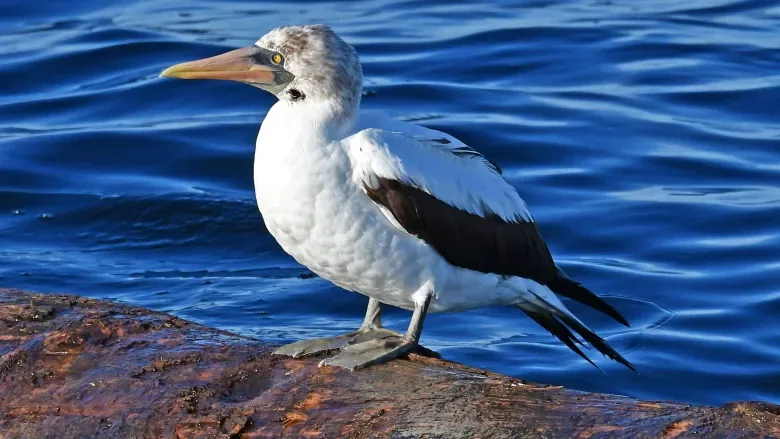
A Nazca booby seabird is seen near the Victoria harbour on July 24. It was first seen a day earlier by boat captain Tasli Shaw. (Matt Stolmeier)
It's only the third confirmed sighting of the bird in the province, according to B.C. Rare Bird Alert.
"This sighting was very meaningful … to have the privilege to find only the third confirmed Nazca booby in the province," Shaw said. "It was the highlight of my birding career."
Shaw said the boat, with a number of curious passengers, was rocking in the rough sea. The bird itself was moving erratically.
She said once she explained to passengers what she was doing — "driving a big circle, trying to keep up with the bird and get good images of it" — and how rare the bird was, they were "very amazed."
On a trip that included sightings of a humpback whale and calf, and a harbour seal giving birth, the Nazca booby sighting was still the highlight, she said.
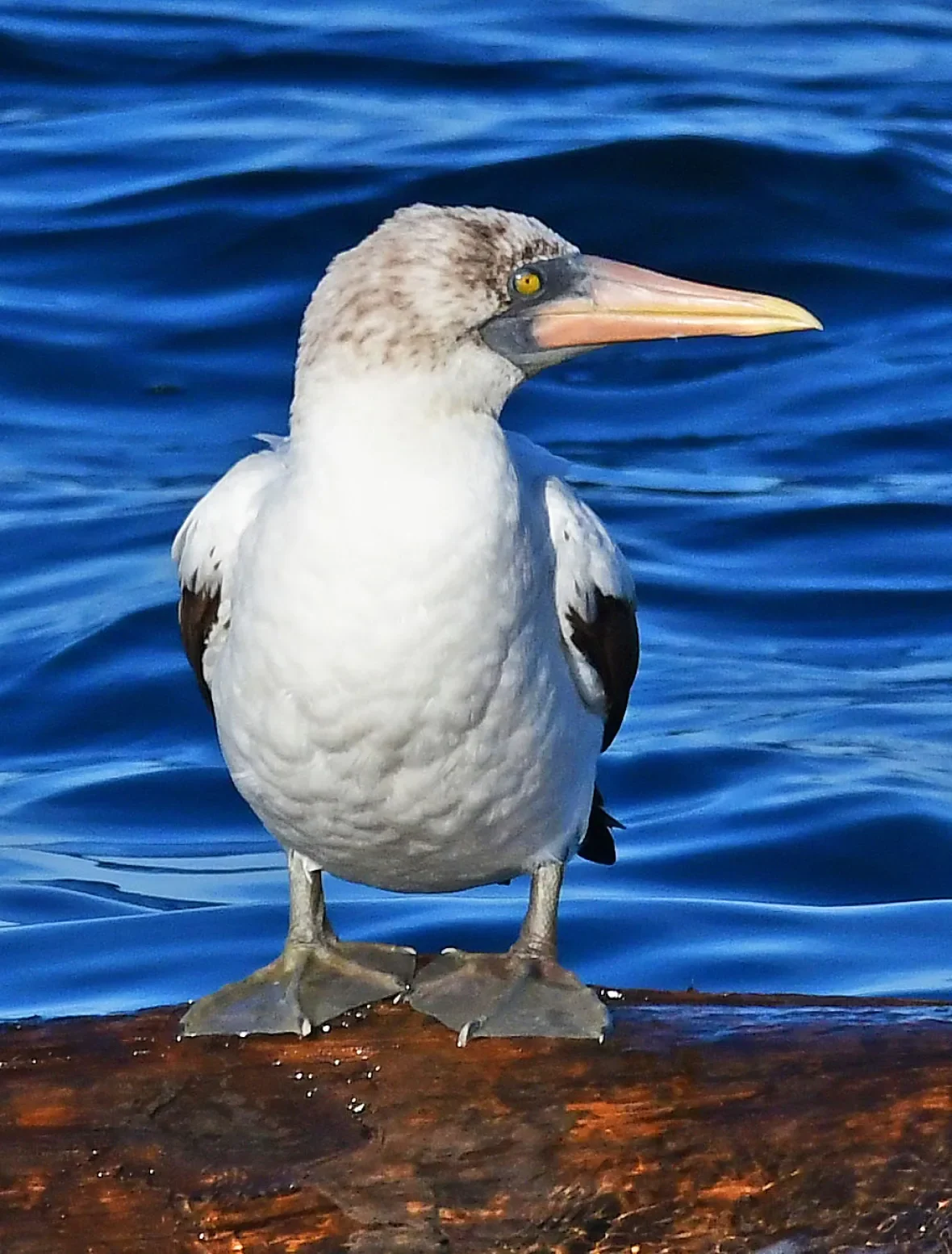
Boat captain Matt Stolmeier, who took this picture, said many had been on high alert for the bird after being notified of Shaw's sighting. (Matt Stolmeier)
"I feel very privileged to get to be on the water so much, and I experience all of the other amazing seabirds that we have living here," she said. "To have the rare bird pass through is a cherry on the cake."
Matt Stolmeier, another boat captain who managed to get high-resolution pictures of the bird a day after Shaw's sighting, said he spun his boat around once he noticed the bird in the corner of his eye.
"Our network of wildlife guides and naturalists were notified of Tasli's sighting, so many of us were on high alert for this bird," he said. "It was a very exciting find."
Migratory season still occurring
Ann Nightingale, a volunteer with the Rocky Point Bird Observatory, said she chartered a boat after the news of the Nazca booby sighting spread, but she was unsuccessful in crossing paths with it.
"I know that there were people who got on the first ferry they could from Vancouver, to get onto a whale watching boat in Victoria, in hopes of trying to see it," she said. "When a new bird shows up … people really run to try and see it."
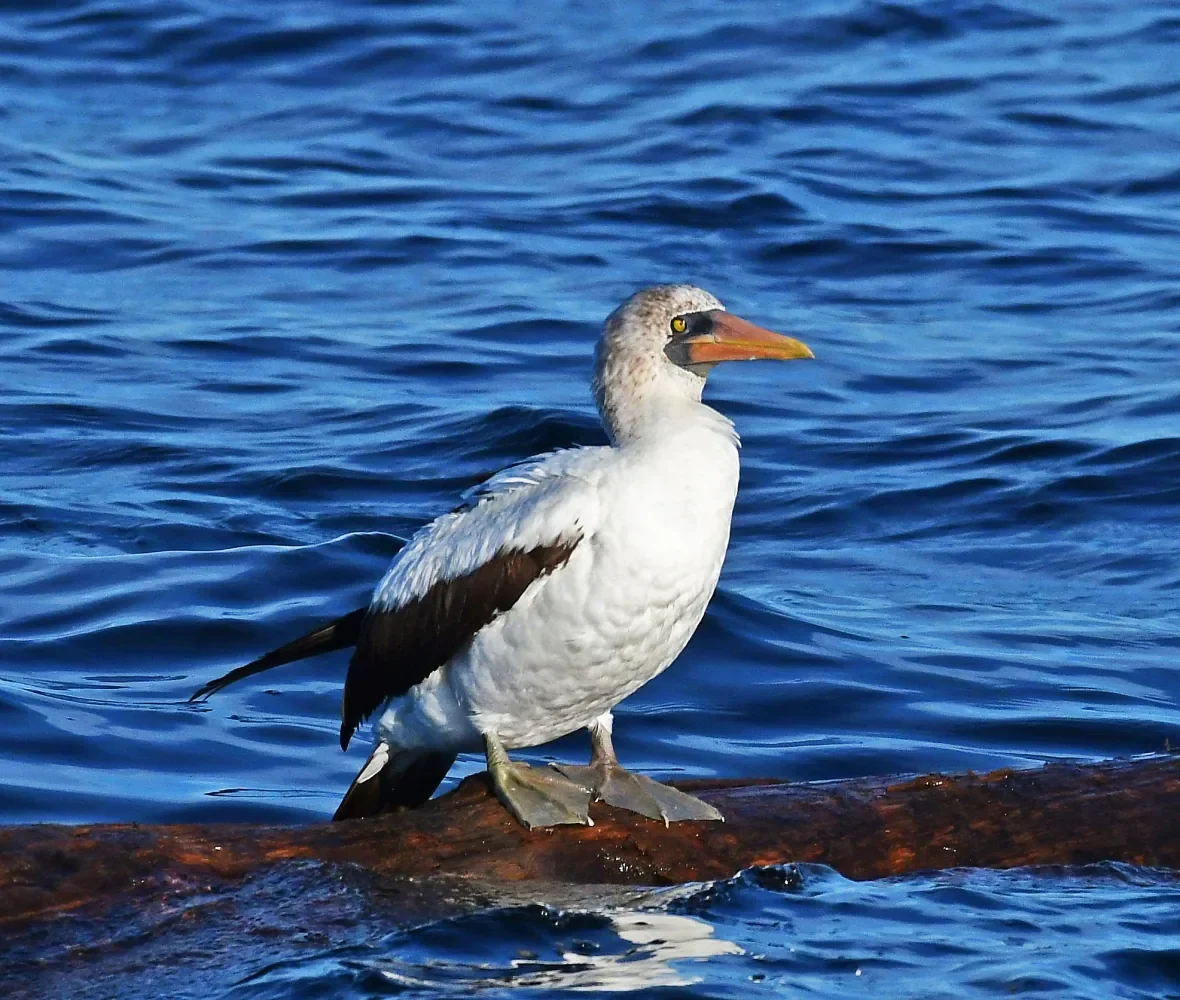
The Nazca booby is native to the east Pacific, in the Galapagos Islands and near Mexico. The bird has only been seen three times in the province, according to B.C. Rare Bird Alert. (Matt Stolmeier)
The Nazca booby is not listed in the provincial conservation list given how rarely it makes its way up the west coast.
It typically breeds in warmer seas near the Galapagos Islands and Mexico. It is called a "booby", according to the Oxford English Dictionary, likely due to the old Spanish name "pájaro bobo" — stupid bird.
Nightingale says the fall migration for birds, which happens starting July, means more birds normally seen in far-off locales could make their way to B.C.
WATCH: Whistling ducks make rare Canadian appearance in New Brunswick
"Birds may be wired incorrectly so that they go the wrong way. They may get blown off course," she said. "While birds are on the move, it's the best chance for them to get into the wrong places, and therefore, be a rare bird where they've shown up.
"Definitely, birders are quite excited when migration happens, whether it's the fall migration like we have now or spring migration where birds are moving."
She encourages aspiring birders to look at databases like eBird or the B.C. Rare Bird Alert page as migration continues and more birds make their way to the province.
The story, written by Akshay Kulkarni, was originally published for CBC News.









